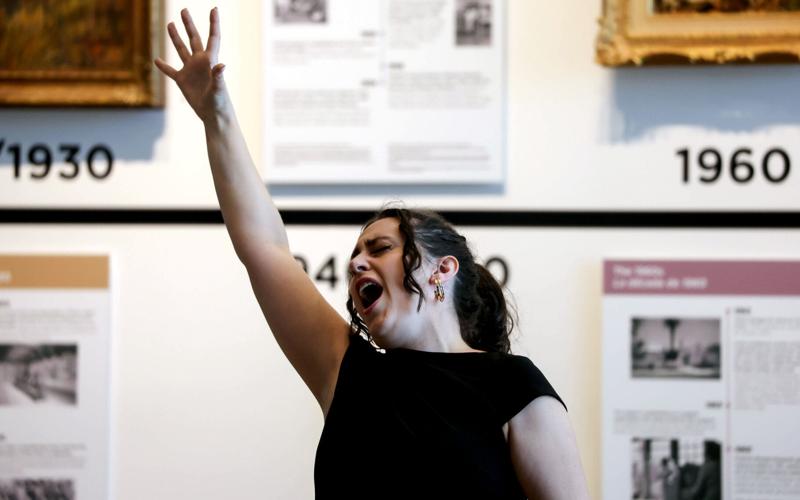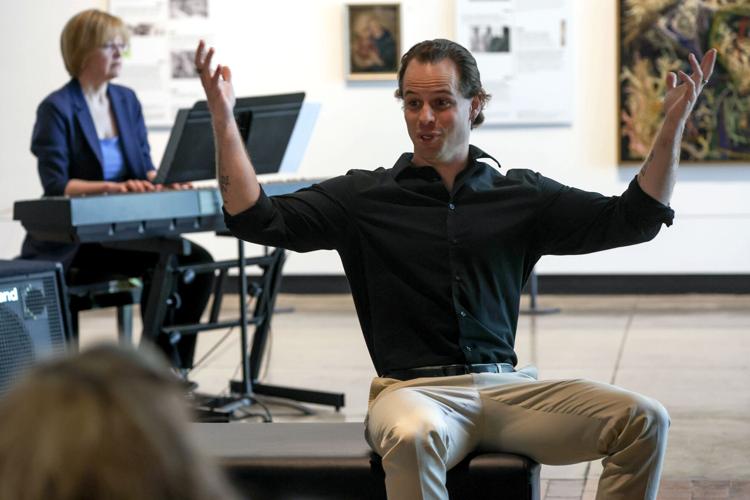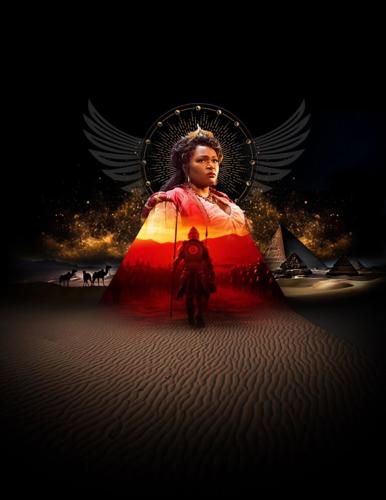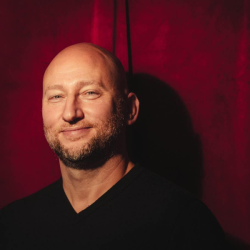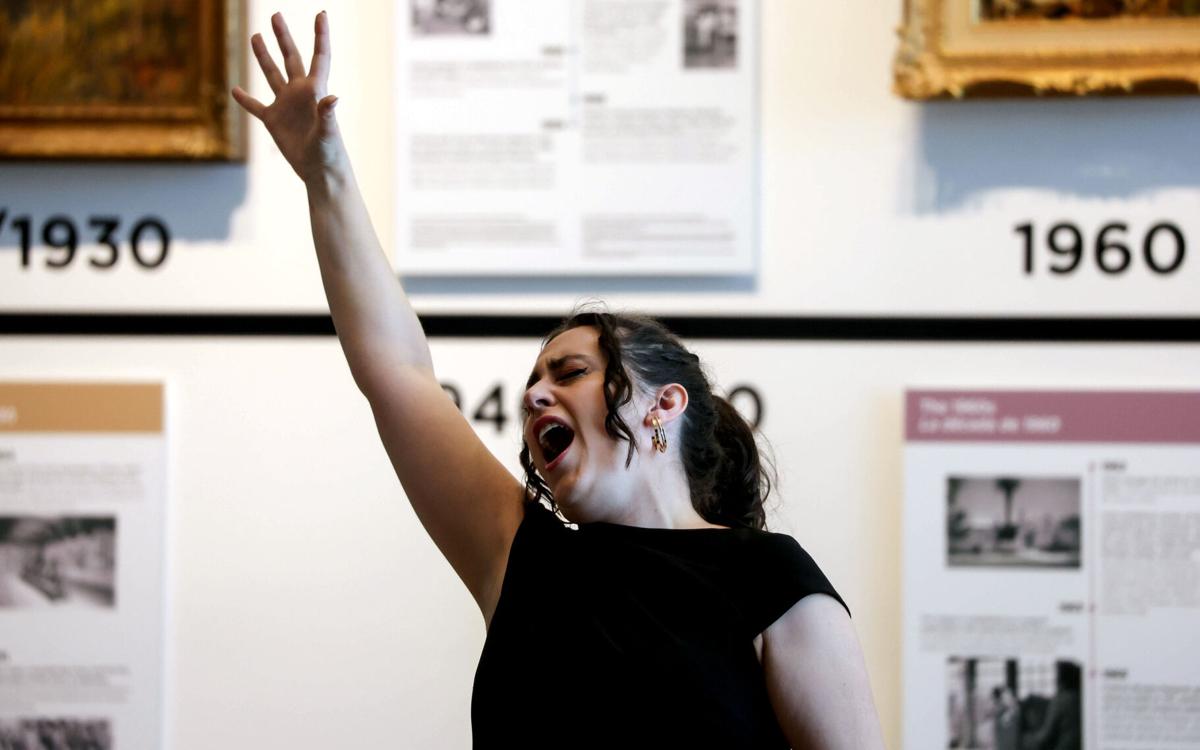They came from Sierra Vista, the two men and young boys dressed in formal kilts, their wives and young girls sporting Victorian-style formal gowns.
Since Arizona Opera opened its 2023-24 season last October through last Saturday’s season finale, the group of friends have made the 70-minute drive to Tucson as an excuse to get dressed up.
“We made an event of it,” explained Krystle Harrell, who said she and her friend told their husbands that group dating at the opera was a wonderful excuse to gussy up. “We dress up. We get a hotel. We go out to dinner. We love to do it. Now we’re bringing our kids.”
Next season, Harrell and her friends will have to travel an extra 90 minutes to downtown Phoenix for their Saturday opera night on the town.
Arizona Opera, in its just-announced 2024-25 season, is presenting only one performance of each of its three operas in Tucson, at 2 p.m. Saturdays in January, April and next October.
The decision to downsize the performances in Tucson follows the company’s move this season to reduce the number of performances in Phoenix, to two from three.
“It’s an unprecedented challenging time for the arts,” said Arizona Opera President and General Director Joseph Specter. “We are hoping the community will stick with us.”
Specter said Arizona Opera has been dealt a triple blow since the COVID-19 pandemic shuttered live entertainment for a year. It all started with its 2020-21 season, which should have been five performances. Instead, the company hosted a series of outdoor and streamed concerts, which resulted in a seismic drop in ticket revenues and an even bigger decline in contributions. With no butts in the seats at Linda Ronstadt Music Hall, the company wasn’t reaching its target audience of contributors, whose gifts comprise 70% to 80% of the company’s $7.5 million operating budget.
But it is the pandemic’s drawn-out hangover that is hurting not only Arizona Opera but arts across the board. Audiences have yet to return to pre-pandemic levels, which Specter and others in the arts attribute in part to the lingering recession — people are choosing to forego season tickets and instead buy single tickets and attend fewer events — and partly to people getting out of the habit of attending live performances.
During the pandemic, subscribing to streaming services replaced live entertainment and by the time live performances returned, people had gotten comfortable being entertained in their living rooms.
Add to that equation the loss of a large segment of older audience members, who are still uncomfortable returning to live performances.
In the two years since the height of the pandemic, Arizona Opera has only been able to fill on average 30% of Linda Ronstadt Music Hall; the numbers are proportionately higher in Phoenix, at 70%, Specter said. By combining two performances into one, Specter said the hope is that the one performance will be before a fuller house and the company would save the money it would have spent on the second performance.
Arizona Opera will mount three operas at Music Hall in the 2024-25 season, which opens in October with “Beyond Downtown,” a new collaboration with San Jose, California’s Opera Cultura and New York’s On Site Opera to present “energetic and unexpected” site-specific opera performances to reach new and more diverse audiences. Specter said they are in the development stages of how that will look, but it might be reminiscent of this season’s outdoor concert performances in Tucson and Phoenix. The last one was held at the Tucson Museum of Art on April 26.

Peter Barber, a bass-baritone studio artist, sings “Madamina, il catalogo è questo” from “Don Giovanni” by Mozart during the Arizona Opera’s Opera Outdoors performance at the Tucson Museum of Art.
Next season is a radical departure for the company, which historically has opened its season in October and presented four fully-staged operas through April.
The first staged opera next season comes in the new year with Puccini’s beloved “La Bohéme” on Feb. 1, 2025, followed on April 19 by the critically-acclaimed soprano Leah Hawkins making her role debut in a projection-based concert production of Verdi’s “Aida.” The season finale won’t come until Oct. 4, 2025, with Héctor Armienta‘s new opera “Zorro,” sung in English and Spanish.

Arizona Opera is bringing three staged operas to Tucson in the 2024-25 season including Puccini’s “La Bohéme” in February.
Arizona Opera also will host a recital with tenor Stephen Costello and pianist Anthony Manoli on April 30 as part of the 2025 Tucson Desert Song Festival. For the first time in its years-long collaboration with the song festival, the opera will bring the recital to its Phoenix audiences on April 1 as part of its ongoing partnership with Arizona State University School of Music, Dance and Theatre.
Specter said Arizona Opera’s focus is on rebuilding financially so that it can continue innovating and presenting high-quality opera and educational programming to its birth city of Tucson and Phoenix. Since last fall, Arizona Opera has brought performances to 150 schools — 50 in Tucson — exposing 55,000 children to opera in their classrooms.
He admits, though, that the task can seem daunting, especially when he considers the recent impact the state of the industry has had on other American opera companies.
Tulsa Opera in Oklahoma last June canceled most of its 2023-24 season and lost its general director in the process. The company cited financial struggles “exacerbated by the COVID-19 pandemic,” according to a report in the Tulsa World newspaper.
In the months that followed Tulsa’s announcement, Western New York’s renowned Chautauqua Institution announced sweeping operational changes to its opera company and conservatory to dig out of its financial crisis. Part of that meant downsizing the company’s young artists program from 24 students to eight and eliminating backstage positions, according to a report in the Buffalo News.
San Diego Opera last April canceled its production of “The Falling and the Rising,” which was postponed from 2020 to this May.
Opera Philadelphia in August reduced its staff by 16% to trim $2 million from its budget. Its longtime director also stepped down and the company postponed one show to the 2024-25 season as a cost-cutting measure.
Maryland Lyric Opera in October unceremoniously threw in the towel. The following month, Syracuse Opera canceled the bulk of its 2023-24 season and furloughed its staff (one full-time employee and three part-timers). The company has yet to announce where it will go from here.
“It’s easily the most challenging time in my 12 years in artistic management,” said Specter, who has been with Arizona Opera since 2016 after four years leading Austin (Texas) Opera and several years working on the fundraising end of New York Metropolitan Opera. “But this is primetime for creative solutions. It’s also primetime to be humble and realize opera is struggling.”
Specter said the changes to Arizona Opera’s programming and season calendar came out of a series of strategic planning meetings in January. The goal was to find ways to manage expenses to match the downturn in funding while still maintaining the opera’s “high quality and impact and continuing to be innovative.”

Soprano Leah Hopkins returns to Arizona Opera in her role debut in Verdi's "Aida."
His message to Tucson operagoers like Harrell and her friends: “Stay with us. Go on this journey with us. We need the community,” he said.
Harrell and her friends said they are not too keen about attending a Saturday afternoon performance, but that doesn’t mean they will walk away from the opera.
David Behan said the group is willing to travel to Phoenix to see performances on Saturday nights. They did that in March for “Romeo & Juliette” when they weren’t able to get tickets for the Tucson performance, he said.
But, “we like the night performances,” said Behan, who was rocking a tuxedo-style waist coat, crisp white shirt and bow tie with his formal kilt and matching flash at the April 27 performance of “Don Giovanni.” “It gives us a reason to dress up like this. Saturday afternoon is not as fancy as the night.”
For season ticket information, visit azopera.org.
The audience from the 2021 Arizona Opera performance of "El Milagro del Recuerdo" hung around in the courtyard of the Temple of Music and Art to nibble petit fours and sip sangria while a female mariachi performed.


